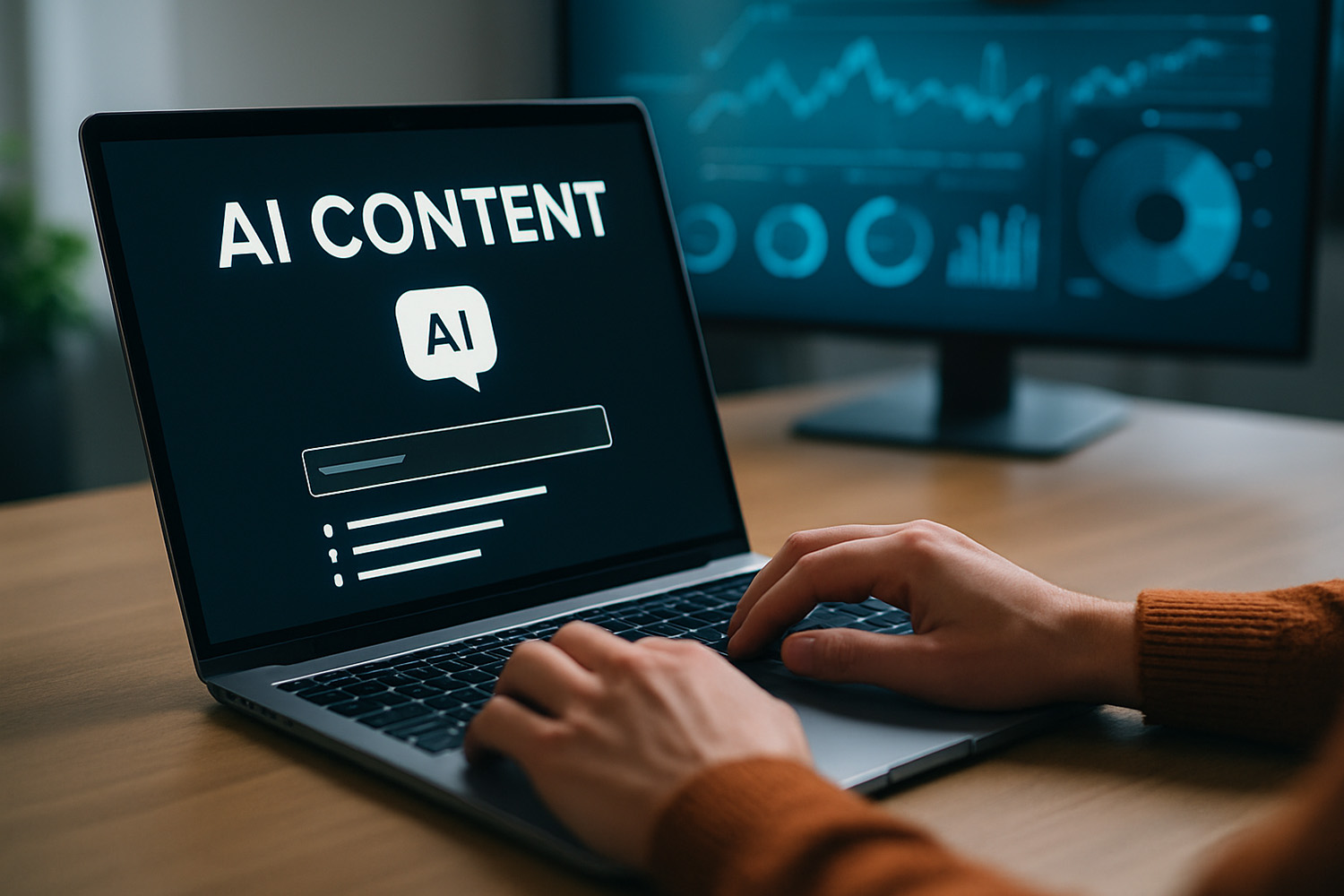Key insights
In 2025, AI-generated content may be good in SEO, although only those that are high-quality, user-friendly, and original, rather than the mass-generated and value-free ones. AI is to be regarded as a means of helping human talents in such aspects as keyword research, on-page optimization, and content structuring, and not a substitute for human creativity and control. The trick is in using AI-generated insights to augment insights and user intent.
As 2025 progresses, artificial intelligence (AI) is revolutionizing the digital world, particularly in search engine optimization (SEO). The nature of AI-generated content begs the question of its usefulness in SEO, as well as the problems that marketers have to encounter. The AI is successful in improving SEO because it is used strategically and responsibly to supplement human activities in content creation.
What is AI-generated content?
Any content that is produced by AI technology is considered AI-generated content, such as blogs, imageries, slogans on social media, videos, and eBooks.
Even though lately the use of AI has surged due to the introduction of conversational chatbots, such as ChatGPT, it has been affecting search engines since Google introduced AI into its algorithms with RankBrain in 2015.
Why AI Content is Good for SEO
The AI technology has grown a lot in its awareness of the language and user behavior, and thus, it has several SEO benefits:
Efficiency and Time Savings
Improved Knowledge of User Intent
AI can be used to personalize content to suit particular needs by examining search trends and user behavior. AI also improves the SEO process by assisting the content authors to match their content with the user intent, which is the purpose behind the search query of a user.
Content Diversification
Data-Driven Insights
Cost-Effectiveness
AI also provides efficient solutions in terms of SEO through automation of time-consuming activities and as well as eliminating the aspect of outsourcing. Although the costs might be very high initially, when considering the long-term savings and efficiency benefits, the costs are usually outweighed. AI enables companies to scale their search engine optimization without the need to incur overhead costs.
Why AI Content is Bad for SEO
Although there are benefits, AI-generated content may also be problematic:

Generic and Repetitive Content
The risk of creating generic or repetitive material is one of the significant shortcomings of AI-generated content. The text generated using AI tools cannot be original and cannot capture the attention of users, and therefore, it will have low search ratings.
Poor Quality Information Potential
In some cases, AI-generated content may contain some outdated or inaccurate information. This can be dangerous to the practice of SEO, since users and the search engines value authoritative information. Misinformation may also confuse the readers and reduce the credibility of a site, which will eventually affect the search results.


Lack of a Human Touch
Users want to see content that they can relate to and that has some meaning, and the inability of AI to reproduce these subtleties in the communication process may lead to content that seems impersonal and does not appeal to the viewers and readers. The content generated by AI does not always have the same level of human touch or the emotional appeal and personal attachment as the content generated by human beings.
Risk of Google Penalties
Misuse of AI-generated content may attract punitive actions by search engines. Google values original and high-quality content and has the capability of punishing sites that generate low-value or spam content.


Ethical Considerations
How Does Google Feel about AI?
The policy of Google on AI-created content has changed, as it is now acknowledged that AI content is not necessarily punished. Rather, Google places emphasis on useful, original, and interesting content, no matter the source. It is important to note that as marketers are concerned with making AI content effective in terms of SEO, they should aim to make sure that it complies with these principles.
Conclusion
The key to effective SEO is in the authenticity of the content and provision of meaningful content that endears to real audiences, as businesses have increasingly realized the potential of AI. As AI-generated content gains popularity, it is essential to strike a balance between this development and human control and creativity to achieve optimal benefits and minimize harm as much as possible.
Even though AI writing tools may simplify the content creation process and boost the level of SEO, their influence will be more complicated as the search engine algorithms change.









